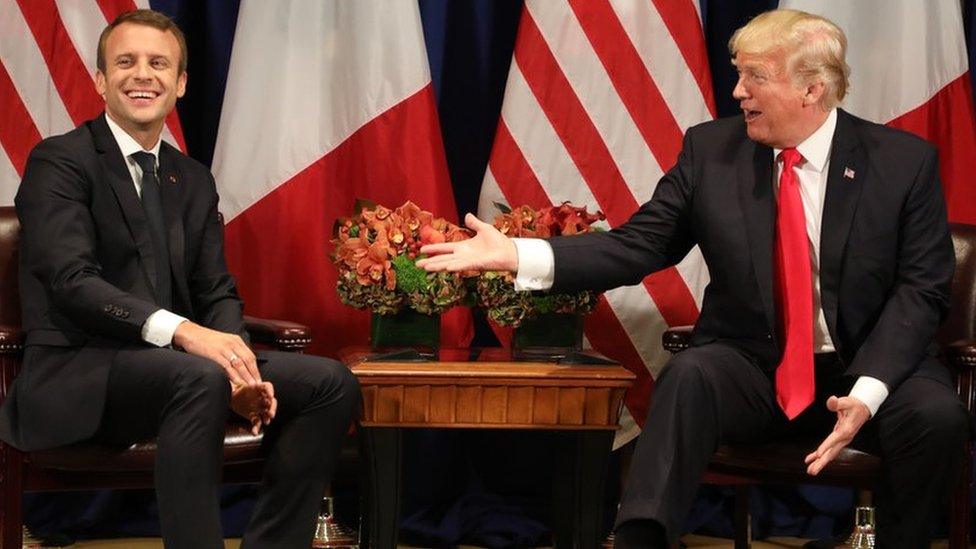Trumplomacy over Iran leaves Europe scrambling for answers
- Published
What's next for the Iran deal? Barbara Plett Usher explains
There is a growing sense of frustration, bordering on incredulity, among President Trump's European allies following his recent actions in the Middle East.
That gulf was on display again on Monday with markedly different responses to the move of the US embassy to Jerusalem and the violence that accompanied it in Gaza.
But it is Mr Trump's abandonment of the Iran nuclear deal last week that really left America's trans-Atlantic allies spinning - trying to discern any sign of a strategy behind the decision and groping for answers that don't seem to exist.
"We asked what is Plan B, what will be the next step," said a European official. "The answer was we have not had time to prepare Plan B because of the change of people at the National Security Council."
The three EU nations party to the deal - Britain, France and Germany - had been negotiating for months to meet Mr Trump's concerns and hoped they would come up with solutions to persuade him not to crash the whole exercise. They saw three possible outcomes as the US deadline loomed on whether to extend sanctions relief.
These were:
The soft option, in which Mr Trump would not renew the sanctions waivers but continue negotiations
The hard option, in which he would blow up the agreement and snap back all the US sanctions
The very hard option, in which he would blow up the agreement and impose extra sanctions
President Trump had made it clear to Emmanuel Macron when the French president visited Washington last month that he wanted out of the agreement.
Trump and Macron's touching moments
So Mr Macron came up with a work-around that he called a "new deal". This would quietly leave the Iran accord intact but add other elements to address concerns about Iran's ballistic missiles, its "malign" regional activity, and the expiration of limits on its nuclear programme.

More on the Iran nuclear deal

That way, Mr Trump could claim triumph. But the EU could retain enough wiggle room for its companies to keep doing business with Iran and keep the Iranian government playing by the rules, thus hoping to avoid another Mid-East conflict.
The US president sounded positive about the input from his European friend, although observers questioned whether he had a clear grasp of the details of the Iran accord and how this "third-way deal" related to it. Either way, the French and their allies began to brace for a pull-out.
The unpredictable Trump administration has one consistency, which is that it leaks like a sieve.
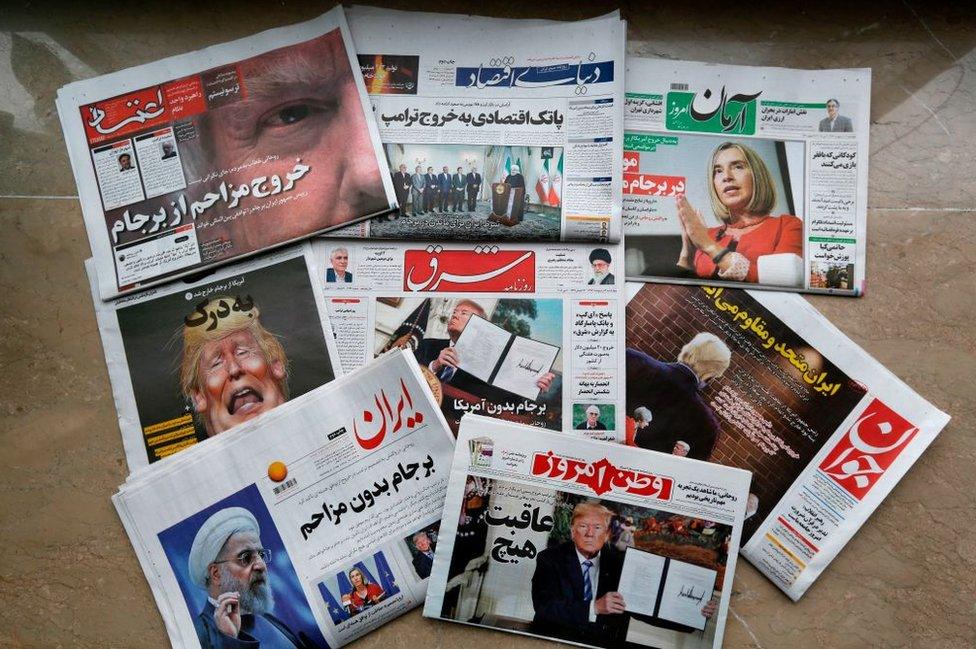
President Trump's decision to abandon the nuclear accord made headlines in Iran
So the Friday before the announcement the Europeans found out that Mr Trump had veered towards option three, a very hard breaking of the deal.
Since then they have been scrambling to find out from the US what this means for major companies that had big plans to make money in Iran. The response so far has lived up to their worst fears.
"We have received absolutely no guarantee, more the opposite, that European business will get any favourable treatment," said the official.
"The generic answer given by [National Security Adviser] John Bolton has been that we want the sanctions to hurt the Iranians, so they have to be extremely strong."
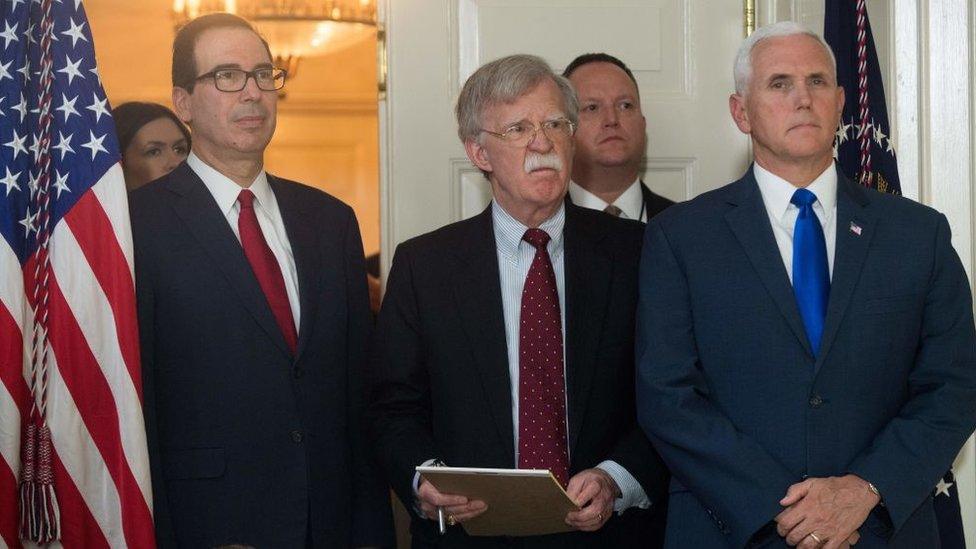
John Bolton, centre, is Mr Trump's newest National Security Adviser
Behind this, said the official, is the administration's faith in a "North Korea scenario. They believe if you squeeze the Iranians they will do what Kim Jong-un did and come to the table".
Of course Kim Jong-un, unlike Iran, actually has nuclear weapons, which may have also given him the confidence to come to the table. That nuance could be lost on Mr Bolton, who has previously called for regime change in both North Korea and Iran.
But even the hardline national security adviser is subject to the whims of the disrupter in chief. A source familiar with how events played out says Mr Trump made his final decision about the Iran deal without consulting cabinet members or senior officials about the possible ramifications, and then took to Twitter.
Mr Bolton heard the news about the timing of the announcement from a European official who had seen the tweet.
Iran nuclear deal: Trump announces US pull-out
If President Trump wasn't speaking to his national security adviser, he apparently also wasn't listening to his Secretary of State Mike Pompeo, who tried unsuccessfully to win a two-week reprieve for the US and Europe to keep negotiating, external.
Now Mr Pompeo is trying to resume those negotiations with the aim of squeezing the Iranians back to the table.
In calls over the weekend to the three European foreign ministers, Mr Pompeo "highlighted the good work that we have done over the past several months to address our common threats and said that he is hopeful we can continue strong co-operation moving forward," said a State Department read out.
The administration does not seem to have considered the possibility that the so-called E3 might not join it in this new "global coalition" to build pressure on Iran, external, and the European official had a different take on Mr Pompeo's phone call.
"How do you see the future, we are keen on negotiating with you," is what Pompeo said, according to the official. "And the answer from the Europeans was: 'No, YOU tell us what is the next step'."

More from Barbara Plett Usher
- Published11 May 2018
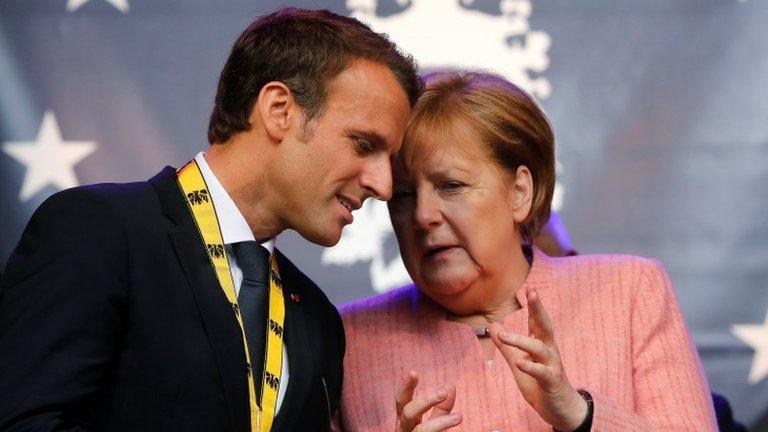
- Published9 May 2018
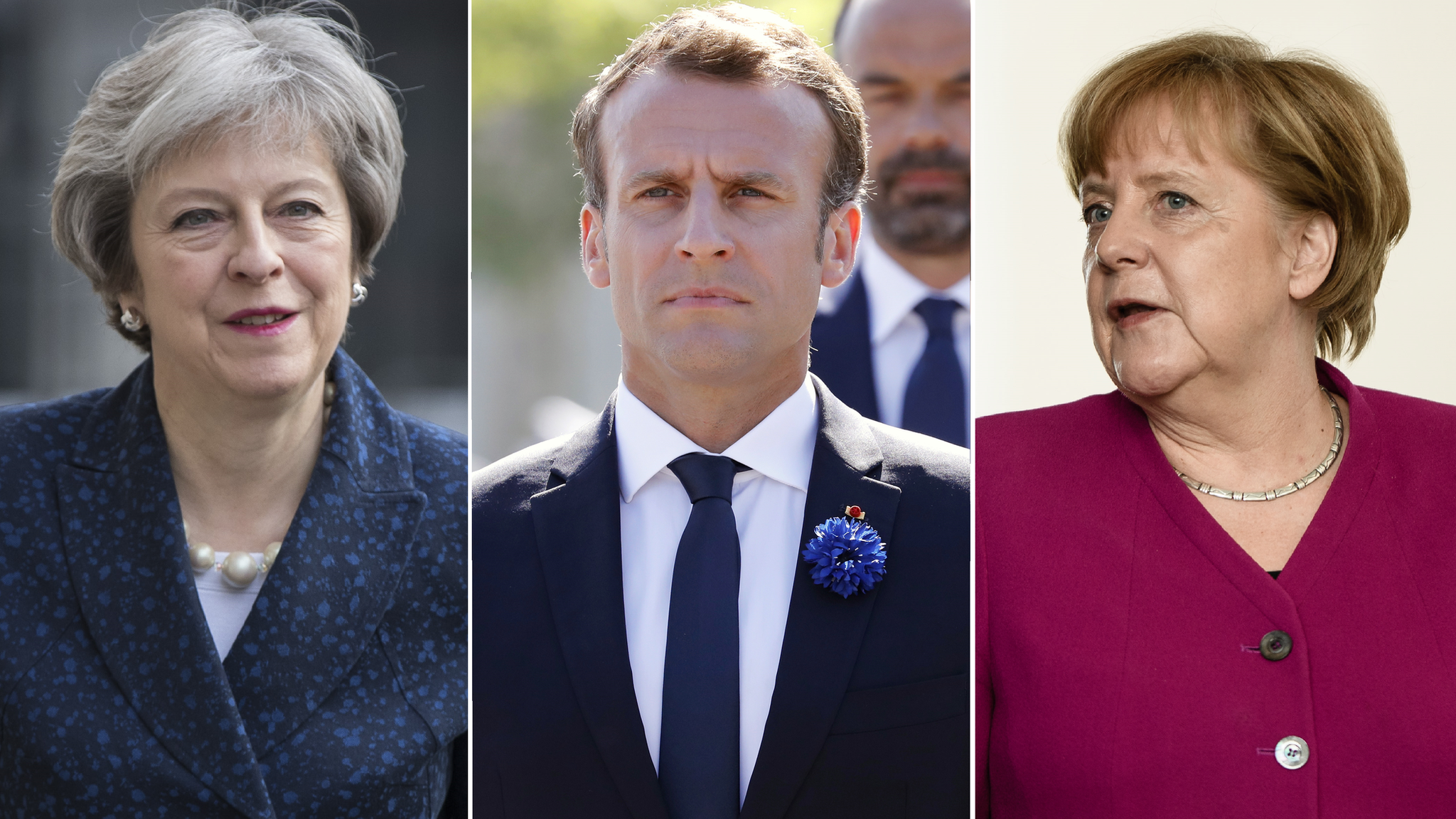
- Published8 May 2018
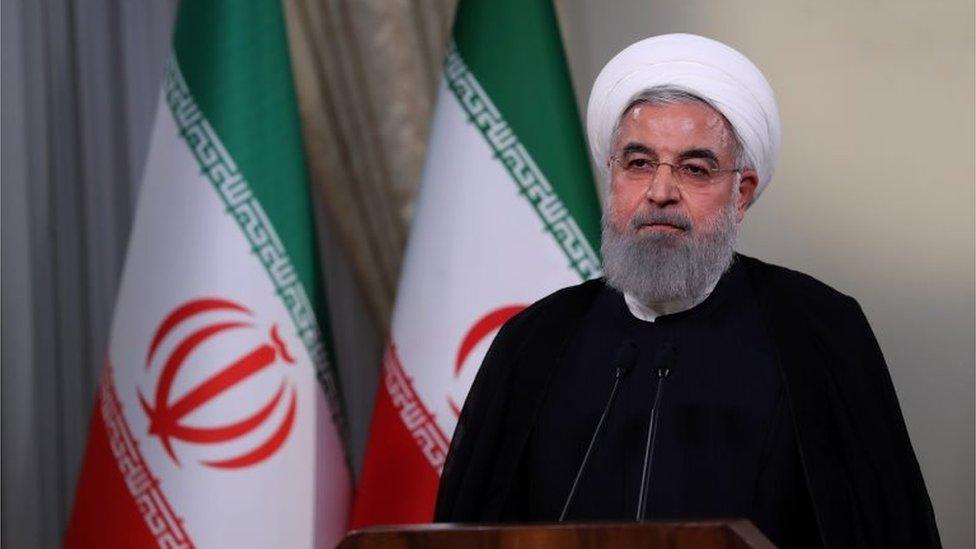
- Published24 April 2018
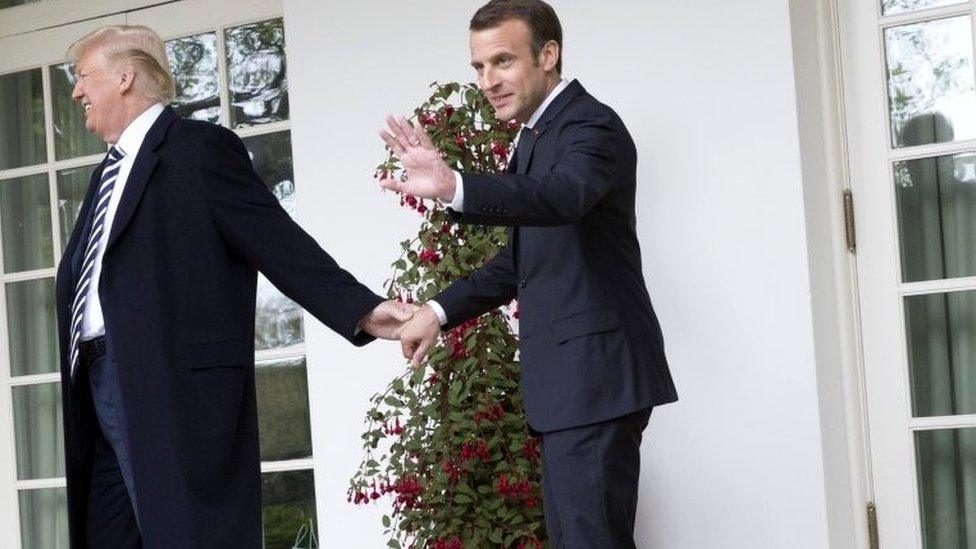
- Published23 April 2018
